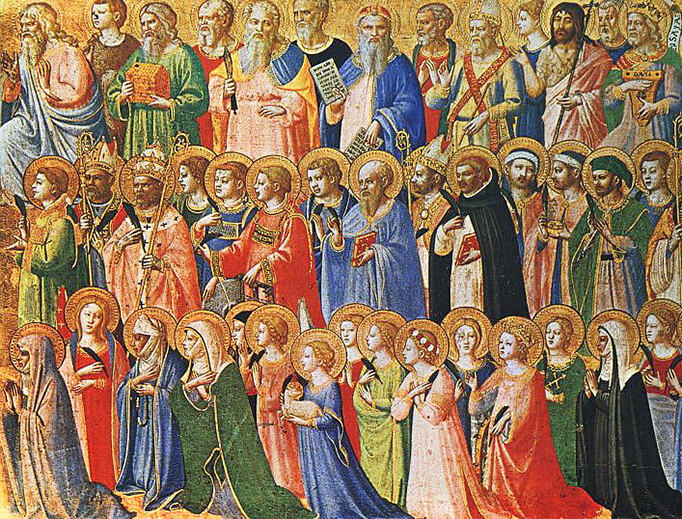God’s Friends are My Friends
The Precedent for Intercessory Prayer

In a series of talks in 2011, Pope Benedict XVI spoke about the efficacy of intercessory prayer. He used the biblical patriarch Abraham as an example — reminding us of how Abraham prayed to God for the people of Sodom and Gomorrah.
“Not so!” cry about a half dozen people I know. Devout and well-meaning Protestants, they buttress their argument by quoting 1 Timothy 2:5: “There is one mediator between God and man, the man Christ Jesus.” These friends believe, wrongly I think, that praying to saints is directly in contradiction with this verse.
The only thing is, I can think of so many times in the Bible when people did, in fact, intercede for one another. Here are just a few examples:
- In the Old Testament, Moses prayed for the people in Numbers 21:7, And the people came to Moses and said, “We have sinned, for we have spoken against the Lord and against you. Pray to the Lord, that he take away the serpents from us.” So Moses prayed for the people.
- 1 Samuel 12:23 shows how important it is that we pray for one another. “Moreover, as for me,” the author writes, “far be it from me that I should sin against the Lord by ceasing to pray for you….”
- In 1 Thessalonians 1:2, Paul writes, “We give thanks to God always for all of you, constantly mentioning you in our prayers.”
- In the letter of James 5:14-20, James encourages prayer for fellow believers: “Is anyone among you sick? Let him call for the elders of the church, and let them pray over him, anointing him with oil in the name of the Lord. And the prayer of faith will save the one who is sick, and the Lord will raise him up.”
- And Paul’s prayer in Philemon 1:4-6 is one of gratitude: “I thank my God always when I remember you in my prayers, because I hear of your love and of the faith that you have toward the Lord Jesus and for all the saints, and I pray that the sharing of your faith may become effective for the full knowledge of every good thing that is in us for the sake of Christ.”
The Communion of Saints
Catholics believe in the “Communion of Saints.” Remembering Paul’s teaching about the Body of Christ, we really understand that we’re all in this together. Christ does not have two bodies, one on earth and one in heaven — only one. And since the saints, our brothers and sisters who have gone before us in the peace of Christ, are now there before the throne of God, how effectively can they plead our case before the Father!
The Difference Between Prayer and Worship
OK, I hear it coming: The same dear friends who quoted from Timothy are next going to be warning me that you must pray only to God, and not to (or through) saints.
They are right in one sense: Only God is worthy of worship. However, the prayer that we direct to the saints is more aptly called veneration – that is, recognizing the goodness of that person, admiring him or her for virtuous behavior during his or her life on earth, and asking this good and holy person to speak to God on our behalf.
The Catholic Church has different words for these different types of prayer:
- Dulia (from the Greek for “respect”) is the kind and and degree of honor and veneration given to angels and saints.
- Hyperdulia is, as it seems, lots and lots of dulia. This extended praise – the highest praise which can be directed toward a created being – is reserved for the mother of God, the Virgin Mary. However, even yet it stops short of “worship” which is due only to God.
- Latria comes from the Greek word for “service” – and it refers to the highest form of veneration and praise, that which is reserved only for God. “Latria” is true “worship.” The ultimate form of worship is adoration expressed in sacrifice; hence the Sacrifice of the Mass is the most perfect form of worship.
But please, don’t take my word for it! Patrick Madrid teaches at length on intercessory prayer in his article from This Rock magazine titled “Any Friend of God Is a Friend of Mine.”
Please pray for me, as I will pray for you.
- Keywords:
- communion of saints
















